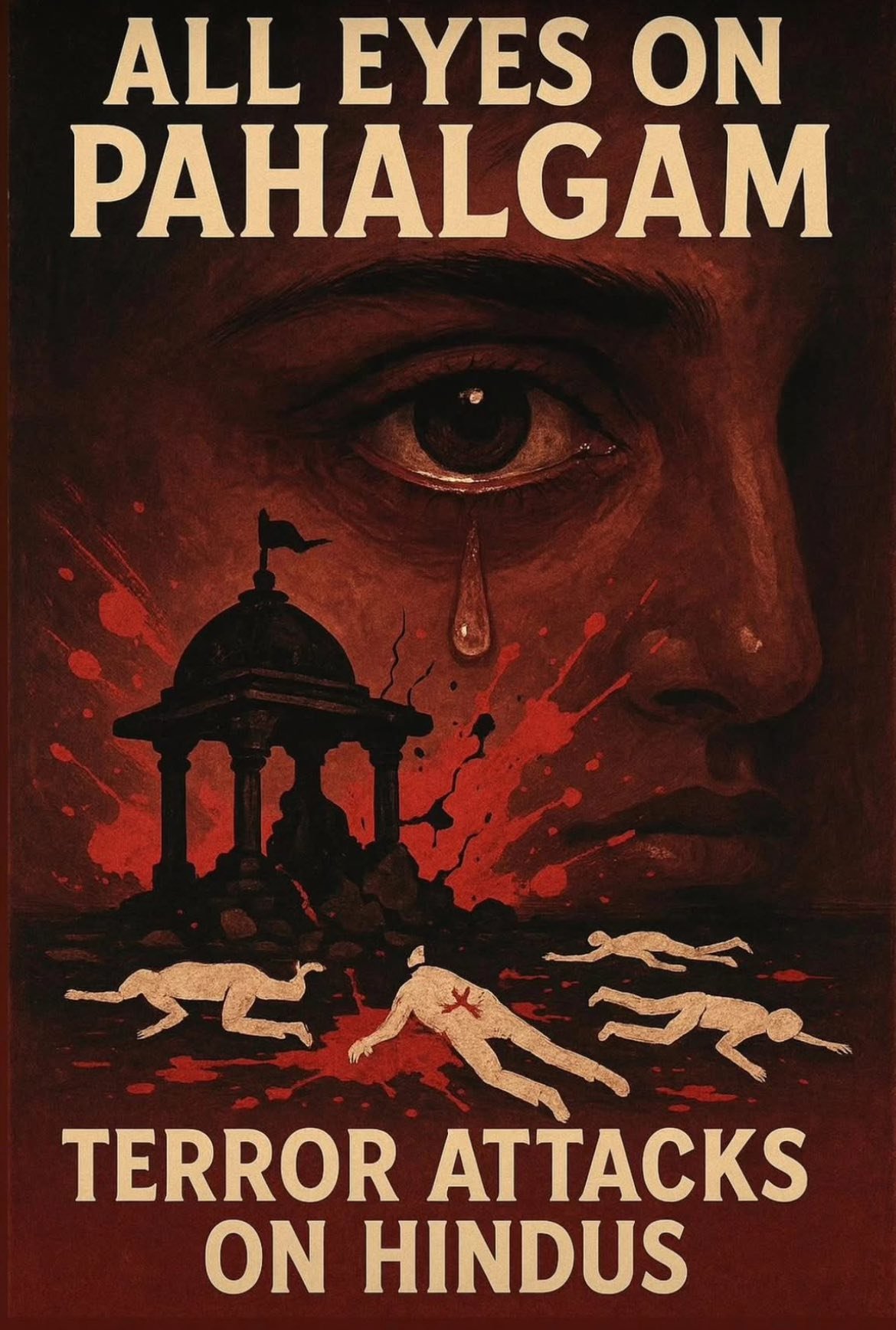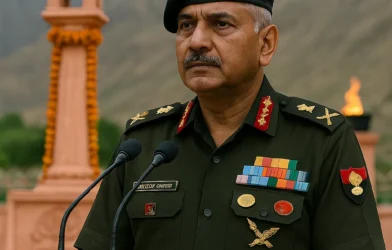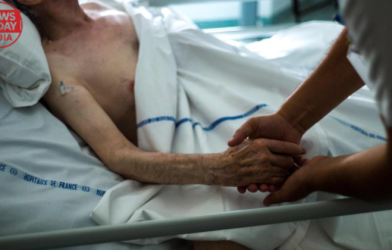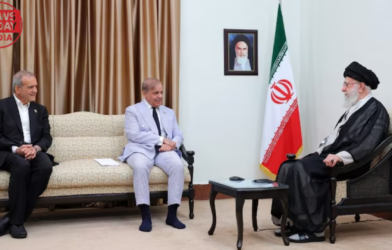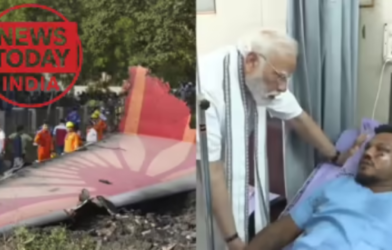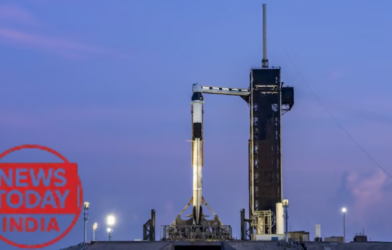Subtotal $0.00
By News Today India | April 23, 2025
A terrible terror attack in Pahalgam, Jammu and Kashmir, on April 22, 2025, left 26 people dead, including tourists. The attack happened in Baisaran Valley, a beautiful spot called “Mini Switzerland.” Terrorists linked to Lashkar-e-Taiba and The Resistance Front, groups supported by Pakistan, are blamed for this tragedy. India’s Prime Minister Narendra Modi took quick action, cutting short his Saudi Arabia trip to lead a Cabinet Committee on Security (CCS) meeting in Delhi. On April 23, 2025, India announced five strong decisions against Pakistan to fight cross-border terrorism.
What Happened in Pahalgam?
On Tuesday, April 22, 2025, 5 to 7 terrorists attacked tourists in Baisaran Valley, Pahalgam, a popular place for visitors. They opened fire, killing 26 people, including 25 Indian tourists, one Nepali citizen, one UAE citizen, and two locals. Over 20 others were injured. The terrorists asked people to recite Islamic verses and shot those who couldn’t. The Resistance Front (TRF), a group tied to Pakistan’s Lashkar-e-Taiba, claimed responsibility. This was one of the worst attacks in Kashmir since the Pulwama attack in 2019.

The attack shocked India. People across the country held protests, lit candles, and demanded justice. World leaders, including US President Donald Trump, Russia’s Vladimir Putin, and Nepal’s PM KP Sharma Oli, condemned the attack. Jammu and Kashmir Chief Minister Omar Abdullah called it the biggest attack on civilians in recent years. Union Home Minister Amit Shah visited the attack site and met victims’ families, promising strong action.
Modi’s Quick Response
Prime Minister Narendra Modi was in Saudi Arabia when the attack happened. He rushed back to Delhi on Tuesday night, April 22, 2025, and held a CCS meeting on Wednesday evening at his home. The meeting included Defence Minister Rajnath Singh, Home Minister Amit Shah, External Affairs Minister S Jaishankar, and National Security Advisor Ajit Doval. They discussed the attack and planned India’s response to Pakistan’s role in terrorism.
After the meeting, Foreign Secretary Vikram Misri announced five big decisions to punish Pakistan and stop future attacks. These steps show India’s zero-tolerance policy against terrorism.

India’s 5 Bold Decisions Against Pakistan
1. Stopping the Indus Waters Treaty
India decided to suspend the Indus Waters Treaty of 1960 with Pakistan. This treaty shares water from six rivers, like the Indus, between the two countries. Pakistan depends on these rivers for farming and water supply. By stopping the treaty, India is putting pressure on Pakistan to end support for terrorism. The suspension starts immediately and will continue until Pakistan stops cross-border terrorism. This is a big move that could hurt Pakistan’s economy.
2. Closing the Attari-Wagah Border
India shut down the Attari-Wagah border checkpost right away. This border is used for trade and travel between India and Pakistan. Closing it stops all direct trade and movement. People with valid travel documents can return through this route until May 1, 2025, but no new crossings are allowed. This step sends a strong message that India won’t allow normal relations until terrorism stops.
3. Canceling SAARC Visas for Pakistanis
India banned Pakistani citizens from using the SAARC Visa Exemption Scheme, which allowed them to travel to India. All existing SAARC visas for Pakistanis were canceled. Pakistanis in India on these visas were told to leave within 48 hours. This decision cuts off travel links and shows India’s tough stand against Pakistan’s role in the Pahalgam terror attack.
4. Expelling Pakistan’s Military Advisors
India declared Pakistan High Commission’s Defence, Military, Naval, and Air Advisors in New Delhi as “persona non grata.” This means they are not welcome and must leave India within one week. This move reduces Pakistan’s diplomatic presence in India and is a big step in lowering ties between the two countries.
5. Pulling Back India’s Advisors from Pakistan
India called back its Defence, Navy, and Air Advisors from the Indian High Commission in Islamabad. The staff at the Indian High Commission will also be reduced from 55 to 30 by May 1, 2025. This decision further cuts diplomatic ties with Pakistan, showing India’s anger over the Jammu and Kashmir terror attack.
What’s Happening Now?
After the Pahalgam terror attack, India is taking more steps to ensure safety and justice:
- Security Boosted: The Indian Army, CRPF, and J&K Police started a big search operation in Pahalgam. They used helicopters and special forces to find the terrorists. Two terrorists were killed, and three others, named Asif Fauji, Suleman Shah, and Abu Talha, are being hunted. The National Investigation Agency (NIA) is investigating, and sketches of the suspects have been released.
- Lockdown in Pahalgam: A temporary lockdown was put in place in Pahalgam to keep people safe. Security was increased across Jammu and Kashmir, and Delhi is on high alert with extra checks at tourist spots.
- Help for Victims: The J&K government announced Rs 10 lakh for the families of those killed, Rs 2 lakh for seriously injured people, and Rs 1 lakh for others hurt. The bodies of victims were sent to their home states from Srinagar airport.
- Tourism Hit: Many tourists are leaving Kashmir after the attack. Airlines added extra flights from Srinagar to Delhi and offered free refunds for cancellations. The US issued a “do not travel” advisory for Kashmir.
- All-Party Meeting: An all-party meeting is planned for April 24, 2025, to discuss the attack and India’s response. Defence Minister Rajnath Singh will lead it.

Why These Decisions Matter
The Pahalgam terror attack was a big shock for India. It targeted innocent tourists, including a newlywed Navy officer, Lieutenant Vinay Narwal, and a pony rider, Syed Adil Hussain Shah, who tried to fight the terrorists. The attack hurt India’s efforts to promote tourism in Kashmir after the Article 370 abrogation in 2019. Modi’s five decisions are a strong message to Pakistan that India will not tolerate terrorism.
- Indus Waters Treaty Suspension: This could hit Pakistan’s farming and water supply hard, pushing them to rethink their support for groups like Lashkar-e-Taiba.
- Border and Visa Bans: Closing the Attari-Wagah border and canceling visas stops trade and travel, hurting Pakistan’s economy and isolating them.
- Diplomatic Cuts: Removing advisors and reducing staff shows India is serious about lowering ties until Pakistan stops terrorism.
These steps could increase tensions between India and Pakistan. Some experts worry about military escalation, but others say these actions are needed to stop cross-border terrorism. Defence Minister Rajnath Singh said India will hunt down not just the attackers but also those planning such attacks from across the border.
World’s Reaction
The world stood with India after the Pahalgam terror attack:
- US: President Donald Trump and Vice President JD Vance condemned the attack and offered support. Secretary of State Marco Rubio and National Security Advisor Mike Waltz also backed India.
- Nepal: PM KP Sharma Oli called Modi to share condolences for the Nepali citizen killed.
- Australia: PM Anthony Albanese called the attack “dastardly” and supported India.
- Russia, Turkey, China: Leaders from these countries condemned the attack, but Canada has not made an official statement, though opposition leader Pierre Poilievre spoke out against it.
- Maldives: Foreign Minister Abdulla Khaleel called terrorism a threat to peace.
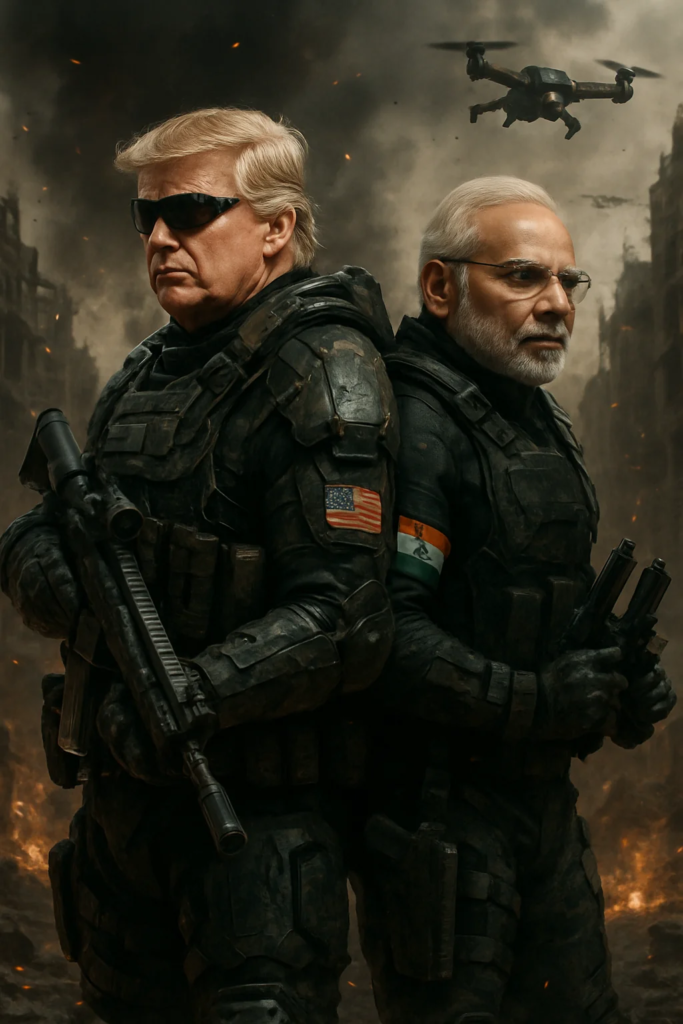
What People Are Saying
India is angry and sad after the attack. Protests happened in many cities, with people lighting candles for the victims. Bollywood stars like Salman Khan and Vivian Dsena spoke out, saying Kashmir is turning into a dangerous place for innocents. Cricketers like Hardik Pandya and Pat Cummins also shared their sadness. Congress leader P Chidambaram said his party will support the government’s actions against terrorism.
However, Robert Vadra caused a controversy by linking the attack to Hindu-Muslim tensions in India, which the BJP criticized. Social media is full of posts about the attack, with hashtags like #PahalgamTerrorAttack and #JusticeForPahalgam trending.
What’s Next?
India’s five decisions are a big step in fighting Pakistan-backed terrorism. The NIA is working to catch the remaining terrorists, and security forces are on high alert. The all-party meeting on April 24, 2025, will discuss more ways to keep Jammu and Kashmir safe. Modi has promised that the attackers and their supporters will face justice.
The Pahalgam terror attack has hurt Kashmir’s tourism, but India is determined to make the region safe again. The government is helping victims’ families and the injured, while also sending a clear message to Pakistan: terrorism will not be tolerated.
Stay Updated with News Today India
At News Today India, we bring you the latest news on the Pahalgam terror attack, Modi’s decisions, and India-Pakistan relations. Keep checking our website for updates on Jammu and Kashmir security, terrorism in India, and more. Share this story to spread awareness about India’s strong stand against terrorism.




